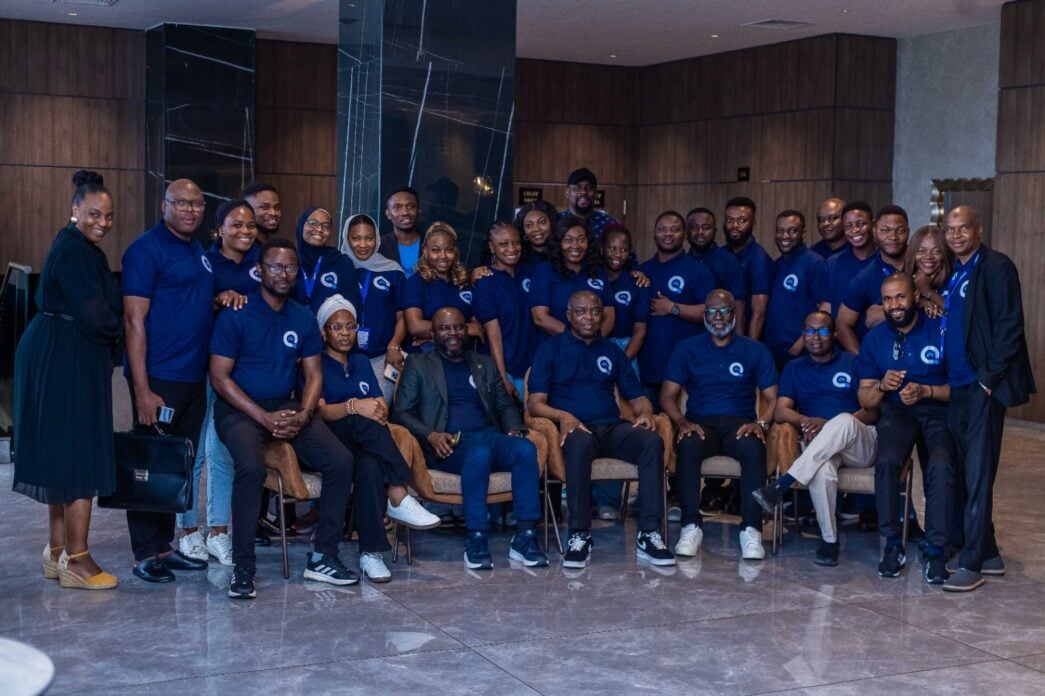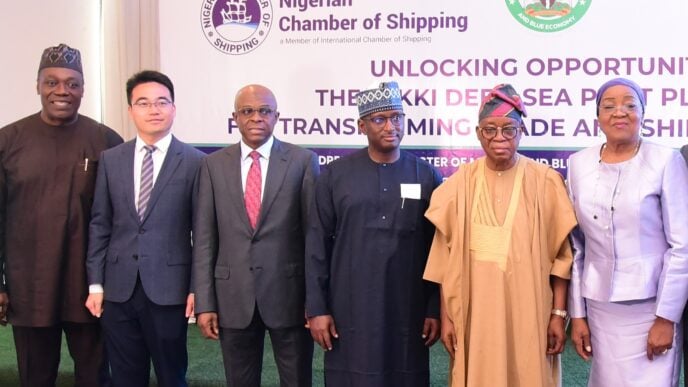Real estate technology firm, Qshelter Limited, has unveiled its plan to deliver 2,500 new housing units within six months across Lagos, Abuja, Kano, and Ogun States, aligning with the Federal Government’s Renewed Hope Housing Initiative aimed at closing Nigeria’s housing deficit.
The announcement was made during a two-day sales strategy conference in Victoria Island, Lagos, where senior executives of Qshelter and its development partners outlined market insights, project updates, and tactical approaches to expand affordable housing access, especially for first-time buyers and Nigerians in the diaspora.
Chief Commercial Officer, Dare Makinde, said the company is scaling its efforts significantly under a national campaign tagged “Mission 2500,” with a target of ₦125 billion in housing sales by year-end.
As part of this drive to deliver 2,500 Renewed Hope properties, Qshelter also plans to extend the initiative to Nigerians in the diaspora, with a goal of selling at least 250 units to this segment.
He stressed that Qshelter’s approach is heavily data-informed and focused on demand hotspots.
“We are building where Nigerians want to live and work. We sold 700 units last year now we are scaling to 2,500. That’s aggressive, but achievable,” he said.
Despite some hurdles, Makinde reaffirmed Qshelter’s commitment to housing delivery under the Renewed Hope Initiative.
“The market is ready, buyers are ready. We just need continued collaboration with government on infrastructure, with banks on financing,” he said.
Managing Director, LandWey Investment Limited, Olawale Ayilara, noted that one of the key projects driving this expansion is the Renewed Hope Coastal City in Lagos State, and Qshelter has engaged LandWey as a strategist consultant on the project.
Ayilara said the Coastal City project is being positioned as a flagship development under the Renewed Hope Initiative, and it must stand out in an increasingly competitive real estate landscape.
He presented a detailed 12-month marketing strategy during the conference, with an emphasis on branding, digital outreach, and buyer incentives designed to spark interest and close deals faster.
On the sales side, Ayilara announced a flexible payment structure: 50 percent upfront, and the remaining 50 percent upon delivery. Mortgage options will also be made available to increase affordability and attract a broader buyer base.
“We’re not just selling houses, we’re selling a lifestyle. And we need to back that up with a great on-site experience,” he said, noting that a well-designed sales office and impressive physical presentation will be key to securing customer trust.
Qshelter’s projects extend beyond Lagos. In Abuja’s Kasana district, 2,800 housing units are planned with 1,700 already under construction. In Kano, 2,000 homes are being developed under the Renewed Hope Cities project, with 800 units underway and 325 already completed while infrastructure of the estate is ongoing. At Shagamu interchange, Ogun State, a 4000-unit housing estate sitting on 201 hectares is scheduled to break ground.
Executive Director, Adegbenga Alamu, said several of these developments are part of the government-backed Renewed Hope Cities and Estates Programme, with Abuja’s Renewed Hope Estate already in its first phase of delivery.
“We’re expecting about 600 units to be ready for commissioning by October. Government has been responsive with infrastructure support, especially in Abuja where road work is ongoing,” he said.
Still, the Qshelter executive stated that high closing costs, including legal fees, documentation, and title processing, remain a deterrent for many prospective homeowners.
“You can spend ₦15 million extra on a ₦100 million home just handling closing costs. That’s where policy change is needed,” Alamu said.
Qshelter’s General Manager, Sales Abuja, John Jatau, identified access to construction funding as the company’s biggest obstacle, worsened by inflation and currency volatility.
“There’s demand, but cost of delivery is rising. We need sustainable, affordable construction finance,” he said.
Chief Technology Officer, Benjamin Akindeko, added that the company’s proptech platform supports fully digital property applications, remote verification, and flexible payment plans tailored to different income groups.













